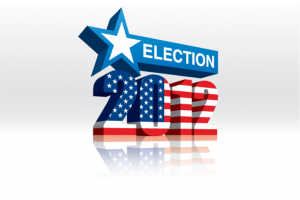 This year, Massachusetts managed to avoid the onslaught of incessant presidential campaigning, unlike swing states like Ohio and Florida who suffered through “Swing State Hell”, as Stephen Colbert termed it. Massachusetts’ typically liberal leanings and voting history have usually given the Democratic nominee a fairly certain 11 electoral votes, causing Republicans to avoid sparing much time or money campaigning here. Since 1972, Massachusetts has almost always voted Democrat, breaking its record only two times: in 1980 and ’84, Massachusetts added even more fuel to Ronald Reagan’s massive victories against Jimmy Carter and Walter Mondale, respectively. Apart from Reagan’s victories, Democratic candidates can usually rely on the Bay State. For a long time however, our town of Walpole has remained an oasis for Republican candidates looking to exert at least some influence in Massachusetts. Found in Norfolk, the richest county in the state (28th in the country for highest annual income), Walpole’s conservative voting history doesn’t seem like too much of an anomaly in a town where some of the nation’s wealthiest reside. This year was no different. In the senate race, Scott Brown received a large majority of Walpole’s votes. Romney carried Walpole with an even greater percentage than McCain did in 2008. However, Romney fell short of his needed 270 electoral college votes on the national level. Notable political commentators around town, some conservative, some liberal, reacted differently to the results of the 2012 election, an over-arching theme being that the weakness found in candidate Romney and the GOP – not the strength of incumbent Barack Obama – was the reason for Democratic victory and Republican defeat.
This year, Massachusetts managed to avoid the onslaught of incessant presidential campaigning, unlike swing states like Ohio and Florida who suffered through “Swing State Hell”, as Stephen Colbert termed it. Massachusetts’ typically liberal leanings and voting history have usually given the Democratic nominee a fairly certain 11 electoral votes, causing Republicans to avoid sparing much time or money campaigning here. Since 1972, Massachusetts has almost always voted Democrat, breaking its record only two times: in 1980 and ’84, Massachusetts added even more fuel to Ronald Reagan’s massive victories against Jimmy Carter and Walter Mondale, respectively. Apart from Reagan’s victories, Democratic candidates can usually rely on the Bay State. For a long time however, our town of Walpole has remained an oasis for Republican candidates looking to exert at least some influence in Massachusetts. Found in Norfolk, the richest county in the state (28th in the country for highest annual income), Walpole’s conservative voting history doesn’t seem like too much of an anomaly in a town where some of the nation’s wealthiest reside. This year was no different. In the senate race, Scott Brown received a large majority of Walpole’s votes. Romney carried Walpole with an even greater percentage than McCain did in 2008. However, Romney fell short of his needed 270 electoral college votes on the national level. Notable political commentators around town, some conservative, some liberal, reacted differently to the results of the 2012 election, an over-arching theme being that the weakness found in candidate Romney and the GOP – not the strength of incumbent Barack Obama – was the reason for Democratic victory and Republican defeat.

Andrew Bacevich, professor of International Relations at Boston University, frequent contributor to Boston.com and the Boston Globe, as well as the author of such works as The Limits of Power: The End of American Exceptionalism, found that Romney’s failure was due to his being, as Bacevich termed it, “a weak candidate.” Like most voters in this year’s election, Bacevich knew that “economic issues predominated for very understandable reasons.” He said, “[Obama], running for re-election with a 7.9% unemployment rate and a string of trillion dollar deficits, ought to have been very vulnerable.” But even still, Romney’s qualifications as a successful businessman and his understanding of private sector economics still failed to win over Bacevich, a fiscal conservative. “I voted for Obama,” said Bacevich, “as the lesser of two evils. Given the fact that the country has been at war for more than a decade, it’s actually quite striking how little foreign policy mattered [to voters] in the election. Romney came across as too bellicose for my tastes, so I’m hopeful that the outcome will produce marginally positive effects.” For Bacevich, an expert in the field of International Relations, his concern about Romney’s ability to tackle foreign policy was a major concern and a contributing factor in his decision to vote for President Obama. Other observers of this year’s election see major flaws in the fundamentals of Romney as a candidate and the party backing him.
Matthew Brownsword, fellow Rebellion staff writer and the liberal mind behind the Rebellion’s political blog Campaign Chatter, said that Romney’s failure this year was in large part due to the Republican party’s inability to identify with a new America. “We’re not the same country we were when Romney was a child or when Reagan was president,” said Brownsword, “our values and our cares as a country have changed. As long as the Republican party keeps pandering to Tea-Party activists and the socially-outdated religious right, it will always remain an unattractive option on the ballot.”

Sam Obar, the fiscally-conservative voice behind his blog Sam Obar 180 and a former writer for the Rebellion, was himself unimpressed with Romney as a candidate, citing similar reasons as Brownsword. “This was a bad year for Republicans” said Obar, “in part because Mitt Romney was such a lackluster candidate. People just weren’t enthusiastic about the GOP, their message, or many of their candidates. They have a major brand problem.” Obar believes that the Republican party’s facelift lies in, as Obar said, “ditching their focus on social issues like abortion and gay marriage.” Obar also said that he did not vote for Romney, but for third-party libertarian candidate Gary Johnson. “I voted for Gary Johnson,” said Obar, “because I thought Mitt Romney was a panderer who had a pretty unimpressive tenure as governor. His business experience was his best asset, but it was trashed by the Obama campaign.” Similar to Bacevich’s criticism of the Romney campaign, Obar said, “With the economy so bad and so many things going wrong for Obama, the president could have been kicked out, but the Republicans really blew it.”
Christopher Jean, also a teacher of International Relations at Walpole High School, believes that Romney’s loss this year had a combination of causes. “Traditional trends in American politics are changing,” said Jean, “the Tea Party has been rebuked. Republicans were unable to anticipate that wealthy, propertied whites would not be the only factor in winning them the election.” Many saw the nation’s changes this year as a clear indicator of a changing nation. Jean said, “It’s bigger than just Obama vs. Romney. This year’s election, and not just the presidential one, showed that African Americans and Latinos, are becoming part of a nation where the system can begin to work for them. People see that the opportunity for success in this nation shouldn’t fall in the hands of a few established groups. The legalizing of marijuana and the election of openly gay people to public office show one obvious fact: Our nation is changing.” Jean, a self-described “true liberal”, voted for Jill Stein. “People need to get real about global warming. The science has been around for years” said Jean, “It wasn’t even seriously discussed in this year’s election. We need to broaden the conversation to talk about something that is very dangerous if it gets out of control, if it already hasn’t.”
Whether or not the Republican party will return in 2016 in shambles or having successfully arisen from their 2012 defeat, there is a definite awareness amongst Americans as to the change our country has undergone. Every generation has always seen its inheritors as a lost group. If anything, we look on our children as having an uncertain fate, especially in times of sudden change. The brave new world of Youtube, drone-missiles, the god-particle, and a changing face to our country all present an unsettling image to those still caught in the world of yesterday. As John F. Kennedy said, “Let the word go forth from this time and place, to friend and foe alike, that the torch has been passed to a new generation of Americans.“
//







